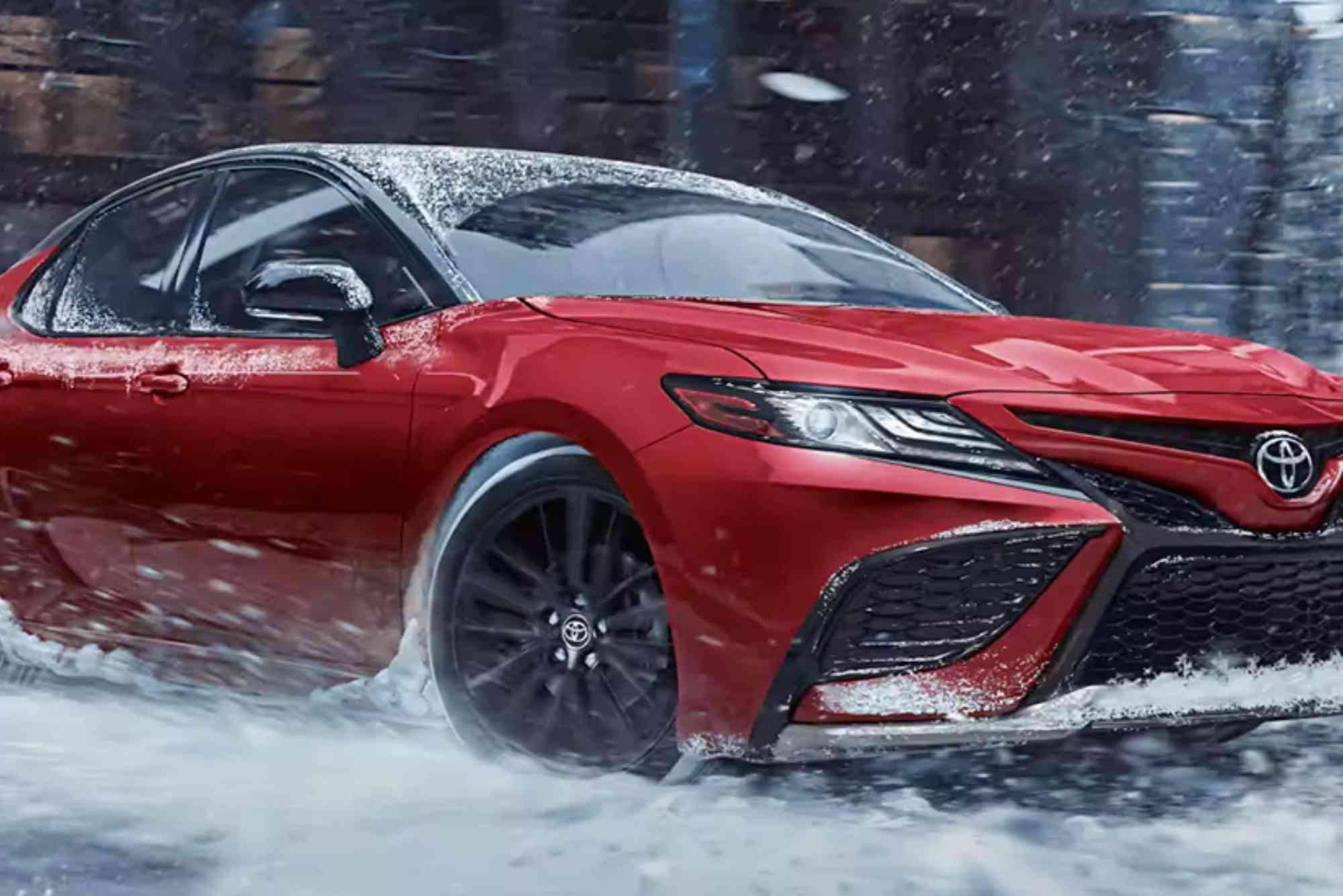Camry Engine CC: What It Means for Your Toyota’s Performance
When people research a Toyota Camry, one of the first technical details they notice is the engine size, often written as engine CC. The term “Camry engine CC” might look technical, but it is crucial in understanding how your Toyota Camry performs on the road. Engine CC, which stands for cubic centimeters, measures the volume of the engine’s cylinders where fuel and air are combined and burned to create power. A higher CC generally means more power, while a smaller CC usually points toward better fuel economy. Understanding this metric helps you decide which Camry is right for your lifestyle, whether you value performance, efficiency, or a balance of both.
What Does Camry Engine CC Mean?
Engine CC, or displacement, measures the total capacity of all the engine cylinders. In simple terms, it tells you how much air-fuel mixture the engine can take in at once. For the Toyota Camry, engine CC varies depending on the model year and trim. Historically, the Camry has offered engines in the 2.0L, 2.5L, and 3.5L range. To put that into numbers, 2000 CC equals roughly a 2.0-liter engine, while 3500 CC means a 3.5-liter engine. The higher the Camry engine CC, the more power the vehicle can generate, but that often comes with increased fuel consumption.
Why Does Camry Engine CC Matter for Performance?
Performance depends on how much energy your car produces and how efficiently it delivers that energy to the wheels. When you drive a Camry with a higher CC engine, you will notice quicker acceleration and more responsive handling, particularly on highways or during overtaking. On the other hand, smaller CC engines are often tuned for city driving and provide sufficient power while consuming less fuel. This balance between performance and efficiency is why Toyota offers multiple engine CC options for the Camry lineup.
Power and Acceleration
A higher Camry engine CC typically translates into more horsepower and torque. For example, the Camry’s 3.5L V6 engine delivers around 301 horsepower, making it one of the more powerful options in its class. This gives drivers a more dynamic driving experience, especially when climbing steep roads or merging onto highways.
Fuel Efficiency Trade-offs
While higher CC engines are powerful, they are less fuel-efficient. A 2.5L Camry engine usually provides a balance of performance and efficiency, offering enough power for daily driving without draining your fuel tank too quickly. Toyota also incorporates hybrid technology to offset fuel consumption, meaning you can enjoy both efficiency and reliability without sacrificing too much performance.
Different Toyota Camry Engine CC Options
Over the years, Toyota has introduced several engine options for the Camry. Each one caters to different types of drivers.
2.0L Camry Engine (2000 CC)
This option is ideal for drivers who prioritize fuel economy and city driving. The 2000 CC engine produces sufficient power for smooth commutes and ensures low fuel costs, making it a budget-friendly option.
2.5L Camry Engine (2500 CC)
Perhaps the most popular, the 2.5L engine strikes a balance between efficiency and performance. With around 200 horsepower, this engine can handle both city commutes and long highway journeys comfortably.
3.5L V6 Camry Engine (3500 CC)
This is the powerhouse of the Camry lineup. With over 300 horsepower, it offers sporty acceleration and excellent performance. Drivers who love a more dynamic, thrilling drive often choose this engine size despite the higher fuel consumption.
Camry Engine CC and Fuel Economy
Fuel economy is one of the most significant considerations when choosing a Camry engine CC. Smaller engines, like the 2.0L, tend to consume less fuel since they require less air and fuel per cycle. Larger engines, such as the 3.5L V6, deliver more power but require more fuel. Toyota addresses this concern by offering hybrid Camry models that combine a gasoline engine with an electric motor. These hybrids often come with a 2.5L engine and achieve excellent fuel economy without sacrificing too much performance.
Camry Engine CC and Maintenance
The engine size also affects maintenance and long-term costs. Higher CC engines may demand more attention because they typically endure more strain, especially if driven aggressively. Parts like spark plugs, filters, and timing belts may wear faster depending on the driving style. However, Toyota engines are known for their reliability, and with regular servicing, both small and large CC Camry engines last for hundreds of thousands of miles.
How to Choose the Right Camry Engine CC for You
Selecting the right Camry engine CC depends on your driving habits and personal preferences. If you primarily drive in the city and want low fuel expenses, the 2.0L or hybrid models are best. If you frequently travel long distances or want balanced power, the 2.5L engine is a safe bet. For those who crave performance and don’t mind paying a little more for fuel, the 3.5L V6 offers unmatched power in the Camry lineup.
The Role of Camry Engine CC in Resale Value
Interestingly, the Camry’s engine CC also influences resale value. Models with the 2.5L engine often retain their value better because they appeal to a broader market of drivers looking for both performance and efficiency. While V6 Camrys are powerful, they may have a narrower resale market due to higher fuel consumption, especially in regions where fuel costs are high. On the other hand, hybrid models, despite a slightly higher upfront cost, often have excellent resale value because of their efficiency and eco-friendly appeal.
Toyota’s Approach to Balancing Engine CC and Technology
Toyota doesn’t just increase CC for performance. Instead, it integrates advanced engineering to optimize efficiency. Features like Variable Valve Timing-intelligent Wide (VVT-iW), direct fuel injection, and hybrid synergy drive systems allow Camry engines to extract maximum power while maintaining reasonable fuel economy. This shows that engine CC is just one part of the performance equation, complemented by cutting-edge Toyota technologies.
FAQs
What does CC stand for in Toyota Camry engines?
CC stands for cubic centimeters and measures the volume of the engine cylinders where combustion occurs.
Which Camry engine CC is most fuel-efficient?
The 2.0L engine and hybrid versions with 2.5L engines are the most fuel-efficient options.
Is a higher Camry engine CC always better?
Not necessarily. A higher CC engine offers more power but also consumes more fuel. The best choice depends on your driving needs.
How many CC is the Toyota Camry V6?
The V6 Camry engine has 3500 CC, which equals 3.5 liters.
What is the standard Camry engine CC?
The most common engine size for modern Camry models is 2.5L, or 2500 CC, offering balanced performance and efficiency.
Finding the Perfect Camry Engine CC
Understanding the Camry engine CC is key to making an informed decision when buying or maintaining your Toyota. The engine size influences everything from performance and fuel economy to maintenance and resale value. Smaller engines are efficient and cost-effective, mid-range engines offer balance, and larger engines provide maximum performance. Whether you want a daily commuter car or a sporty sedan with extra horsepower, Toyota has designed the Camry lineup to meet your needs.




